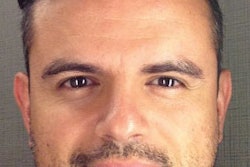Since joining the faculty at the University of Maryland Eastern Shore (UMES) School of Pharmacy in 2010,
Dr. Patrice L. Jackson-Ayotunde has won recognition for exemplary research and teaching.
Last May, the Office of Technology Commercialization at the University of Maryland, College Park presented Jackson-Ayotunde, a recent UMES pharmacy school graduate, an Invention of the Year Award recognizing the research the pharmaceutical sciences professor has led in developing medication to treat epilepsy. In addition, Jackson-Ayotunde’s fellow faculty members selected her for the UMES Promising Scholar Award last year.
In a few short years, the Memphis, Tennessee native has not only managed to win research and teaching awards, she’s also proven adept with handling her share of the heavy administrative and faculty service workload she’s taken on as one of the pharmacy school’s founding faculty members. The UMES pharmacy school was established in 2008 and enrolled its first cohort of professional pharmacy students in 2010.
“In a new program, you have to develop your syllabi; you have to help develop the [school’s] infrastructure, whether it be the assistant professor’s first three years at UMES.
The veteran pharmacy school administrator says Jackson-Ayotunde was “unique as a faculty member in that she
brought both a scientific rigor, in terms of her research, but also a great deal of caring and energy directed at the students” in the program.
“She was able to be productive with her research from the very beginning and involve pharmacy students who were successful. She did an excellent job in developing her own research as well as involving students in that research,” Webster says.
The research that won recognition for Jackson-Ayotunde and her former pharmacy student research assistant is part of the long-term focus she’s had on epilepsy treatment, which dates back to her graduate years at Tennessee State University. University of Maryland, College Park officials recognized the potential of a dozen compounds identified by the Jackson-Ayotunde team to potentially treat epilepsy with limited-to-no-observed neurotoxicity.




















